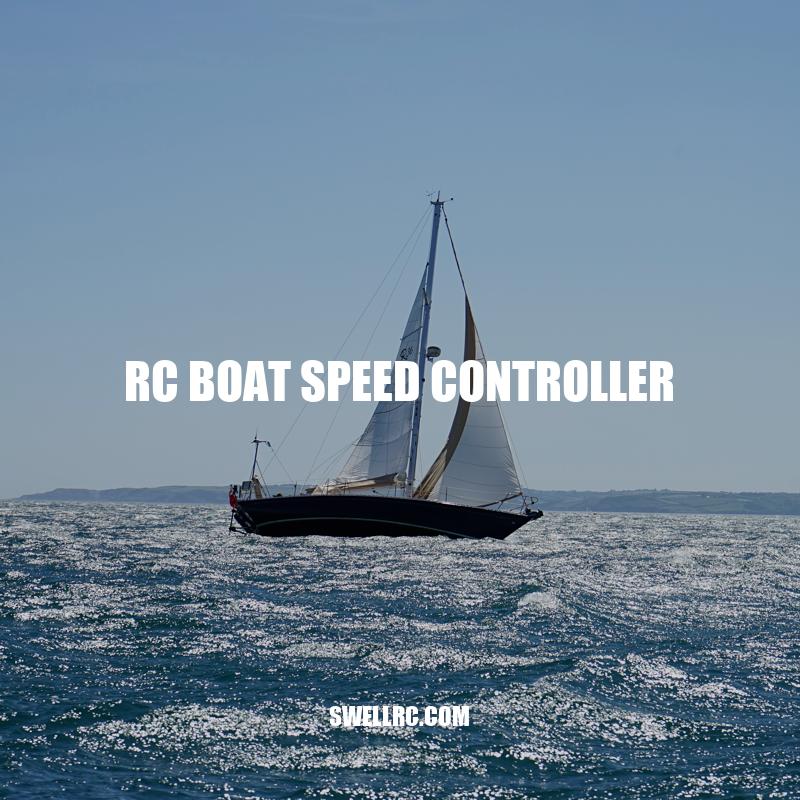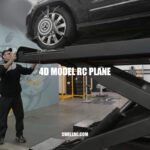Choosing the Right RC Boat Speed Controller: A Guide
An RC boat speed controller is a device that regulates the speed of an RC boat’s motor. It is a crucial component in an RC boat’s propulsion system, as it controls the amount of power delivered to the motor, which in turn impacts the boat’s speed and maneuverability. Choosing the right speed controller is essential for achieving optimal performance and avoiding damage to the boat’s motor and other electrical components. There are several types of speed controllers available in the market, each with its own set of features and benefits. It is important to understand the different types of speed controllers and their key features to choose the right one for your RC boat.
RC Boat Speed Controllers: Types, Features, and Benefits
There are three main types of RC boat speed controllers. Each type has its own features and benefits. They are:
– Brushed speed controllers: These are the most basic speed controllers used in RC boats. They are compatible with brushed motors and operate by regulating the amount of voltage delivered to the motor.
– Brushless speed controllers: These speed controllers are designed for use with brushless motors. They are more complex than brushed speed controllers and offer better speed and efficiency.
– Electronic speed controllers (ESC): These are the most advanced type of speed controllers and are used in both brushed and brushless RC boats. They have a microprocessor that allows for more precise control over the motor and can be programmed for specific applications.
When choosing a speed controller for your RC boat, it is important to consider the type of motor you have and the type of performance you require. Some websites and products offer a guide or calculator to help determine the appropriate speed controller based on the motor and vessel’s specifications.
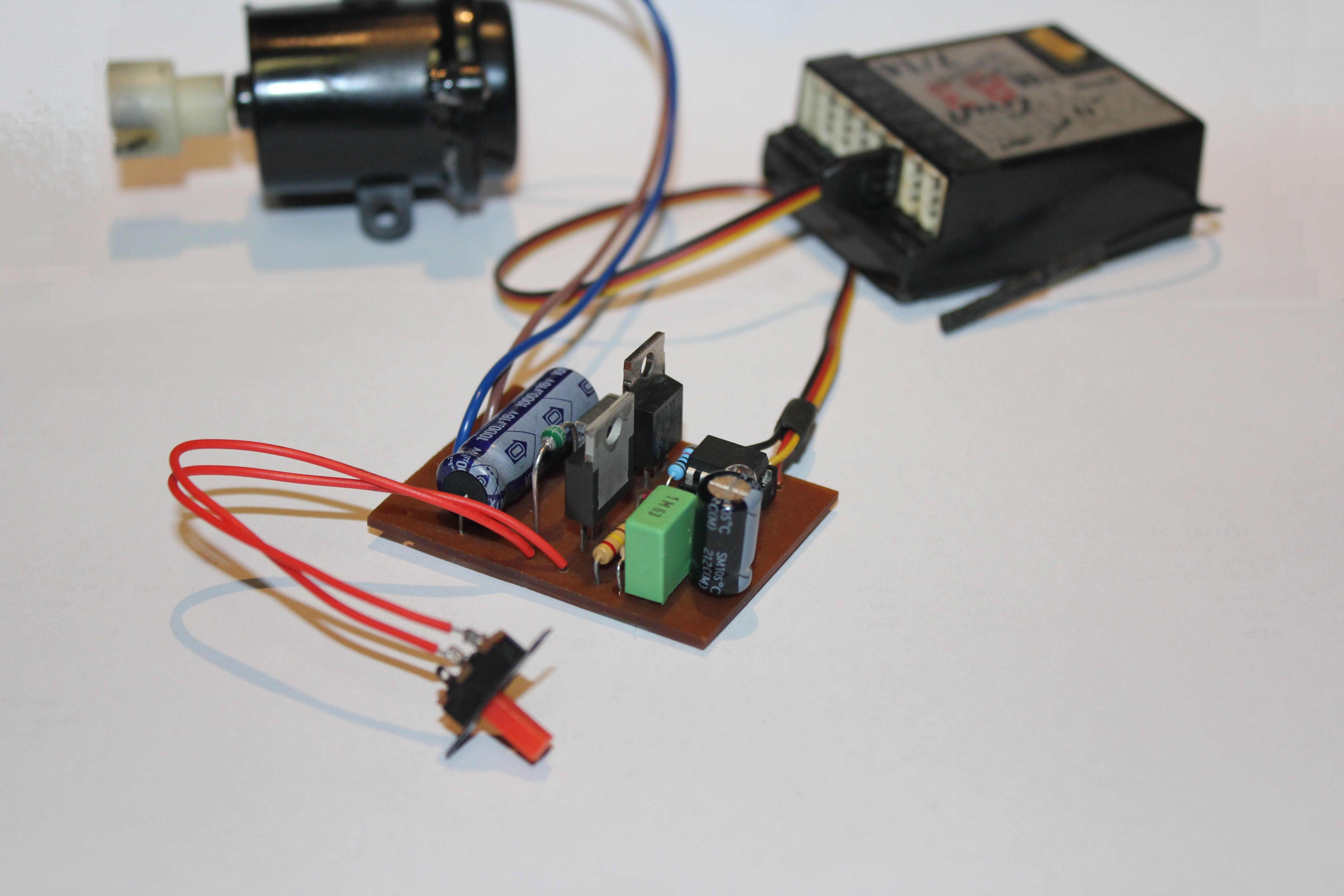
What factors should be considered when choosing a speed controller for an RC boat?
When choosing a speed controller for an RC boat, factors such as the motor type, boat size, battery voltage, and desired speed range should be considered.
Features to Consider When Choosing an RC Boat Speed Controller
When choosing an RC boat speed controller, there are several features to consider. These include:
– Amp rating – The maximum amount of current the speed controller can handle without overheating
– Voltage rating – The maximum voltage the speed controller can handle without malfunctioning
– BEC (battery elimination circuit) – A circuit that regulates the voltage from the main battery and supplies power to the receiver
– Programmability – Allows for customization of settings such as acceleration, braking, and motor timing
– Thermal protection – A feature that shuts down the speed controller if it becomes too hot to prevent damage
– Waterproofing – The degree of protection from water intrusion. Some speed controllers are completely waterproof for underwater operation.
By evaluating these features along with the motor and vessel specifications, you can select the appropriate speed controller for your RC boat. Some products offer a combination of features, such as programmable water-cooled speed controllers that offer the best performance in harsh boating conditions.
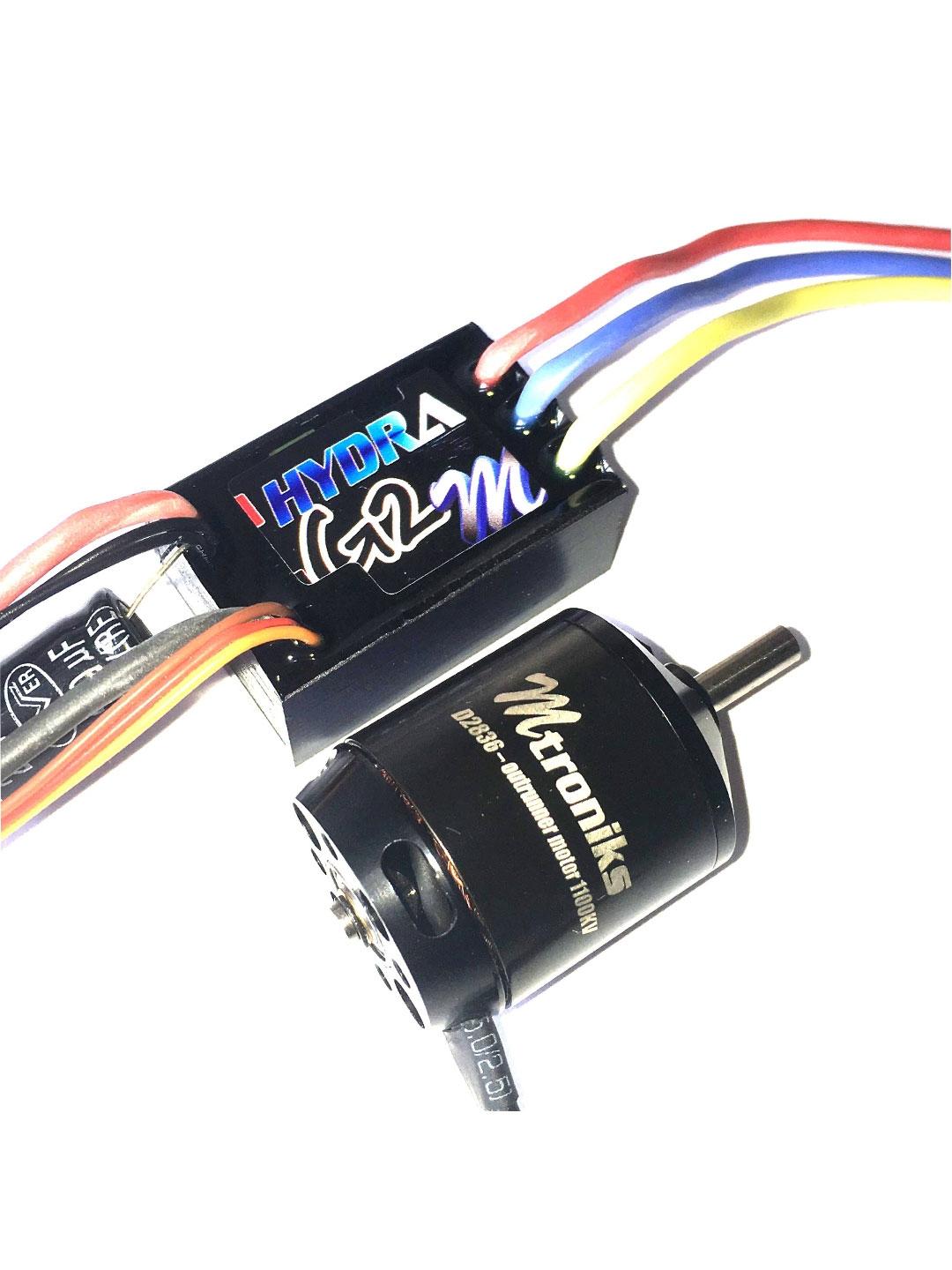
What is a BEC circuit on an RC boat speed controller?
A BEC circuit on an RC boat speed controller is a Battery Eliminator Circuit that supplies the necessary voltage to power the receiver and other electronics on board without the need for a separate battery.
Installing an RC boat speed controller: tips and tricks.
The installation process of an RC boat speed controller requires some basic tools such as a soldering iron, pliers, and wire cutters. Here is a step-by-step guide to install a speed controller:
- Remove the existing speed controller and wires if necessary.
- Solder the motor wires to the speed controller in the correct order.
- Connect the BEC wires to the receiver according to the manufacturer’s instructions.
- Connect the battery wires to the speed controller, making sure to match the polarities.
- Use zip ties or velcro straps to secure the speed controller in place.
Some common mistakes to avoid during installation include:
- Switching the polarity of the battery wires or motor wires
- Overheating the soldering iron and melting wires
- Leaving exposed wires that can interfere with the operation of the boat
It’s essential to follow the instructions provided by the manufacturer of the speed controller and to take safety precautions such as using heat shrink tubing to protect soldered connections. Additionally, it may be helpful to use a guide or tutorial from a reliable source for further assistance in installing an RC boat speed controller. For example, check Horizon Hobby for a variety of RC boat speed controllers.
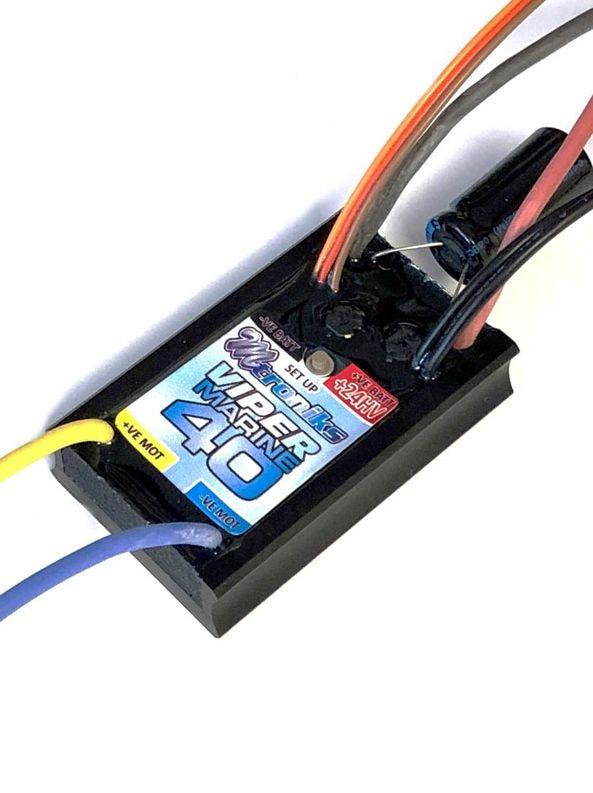
What are some common mistakes to avoid during the installation process of an RC boat speed controller?
Some common mistakes to avoid during the installation process of an RC boat speed controller include not following the manufacturer’s instructions, soldering wires incorrectly, and not properly calibrating the controller. It is important to read the manual thoroughly and ensure all connections are secure before testing the controller.
Tips for Maintaining and Troubleshooting Your RC Boat Speed Controller
As with any electronic device, RC boat speed controllers can experience problems. Here are some common issues and their solutions:
- Overheating: Make sure the speed controller is adequately cooled by placing it in a location with proper ventilation or using a fan. Consider upgrading to a higher-rated speed controller if the current one is not powerful enough for your boat.
- Throttling issues: Check for loose connections or wires and tighten or replace as necessary. Calibrate the throttle on the transmitter to ensure it matches the speed controller.
- ESC failure: If the speed controller stops working altogether, it may be due to an electrical problem or a burnt-out motor. Replace the speed controller if it cannot be repaired.
To diagnose a faulty speed controller, check the following:
- LED lights on the speed controller indicating errors or malfunctions
- The motor not responding to the throttle
- Strange sounds or smells coming from the speed controller
Regular maintenance and inspection can extend the life of the speed controller and help prevent issues. Check for any loose connections or frayed wires, clean the speed controller, and make sure it is adequately cooled. It’s recommended to inspect the speed controller before each use and replace any damaged parts promptly.
There are several online resources available for diagnosing speed controller issues and finding replacement parts. Manufacturer websites, hobby forums, and online retailers are excellent sources of information for managing and addressing RC boat speed controller problems.
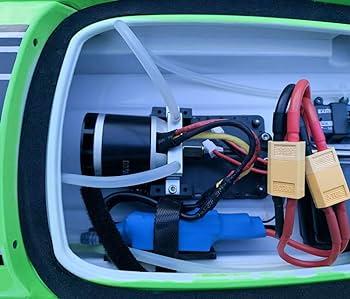
What are some common issues and solutions for RC boat speed controllers?
Some common issues with RC boat speed controllers include overheating, programming errors, and failures in the power supply or motor connections. Solutions may involve installing additional cooling or programming the controller correctly, and checking for loose wiring or damaged components.
Factors to Consider When Choosing an RC Boat Speed Controller
When choosing an RC boat speed controller, several factors should be considered. Below are some of the top-rated speed controllers in the market:
- Traxxas Velineon VXL-6s Marine ESC: This high-performance speed controller can handle up to 6S LiPo batteries and comes with a waterproof design, thermal protection, and programmable features.
- Castle Creations Phoenix Edge Lite: This brushless speed controller boasts customizable settings, a high power output, and a built-in BEC circuit.
- Atomik Waterproof Brushless ESC: This affordable speed controller is ideal for beginners and comes with a waterproof casing and thermal protection.
- Hobbywing Seaking Pro Brushless ESC: This reliable speed controller features a high voltage rating, programmable settings, and a built-in fan for cooling.
- Aquacraft 45A Brushless Marine ESC: This compact and lightweight speed controller is designed for small to medium-sized boats and offers a smooth and responsive throttle.
Many online retailers and hobby shops offer a wide selection of RC boat speed controllers. Amazon, eBay, and Tower Hobbies are popular online marketplaces for purchasing speed controllers, while manufacturers like Traxxas, Castle Creations, and Hobbywing offer official websites and support services. Reading user reviews and ratings can be helpful in determining which speed controller is the best fit for your boat and budget.
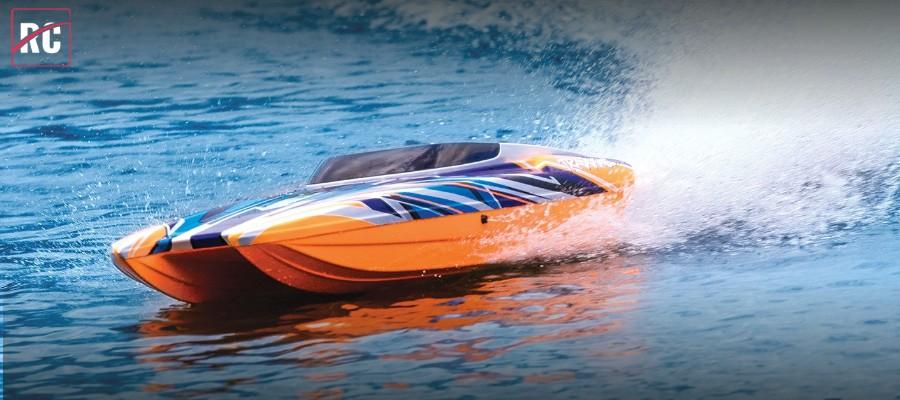
Where can I purchase RC boat speed controllers and what factors should I consider before making a purchase?
RC boat speed controllers can be purchased at various hobby stores, online marketplaces such as Amazon and eBay, or directly from the manufacturer’s website. Factors to consider before making a purchase include compatibility with your boat, size and power requirements, programming options, and budget.
Conclusion:
In conclusion, choosing the right RC boat speed controller can significantly impact the performance and longevity of your boat. Understanding the differences between brushed, brushless, and electronic speed controllers and the features to consider can help you make an informed decision. It’s essential to ensure that the speed controller you choose matches the specifications of your boat and battery pack and offers reliable protection against overloading and overheating.
In addition to purchasing a high-quality speed controller, proper installation and maintenance can ensure optimal functionality and prevent damage to your boat. Avoiding common mistakes during installation, regular inspection and cleaning, and prompt troubleshooting can help prolong the lifespan of your speed controller and ensure a seamless boating experience.
Ultimately, investing in a quality RC boat speed controller is worth it, as it can enhance your boat’s speed, responsiveness, and overall performance. Do your research, compare available options, and choose a speed controller that fits your boating needs and budget. Happy boating!

